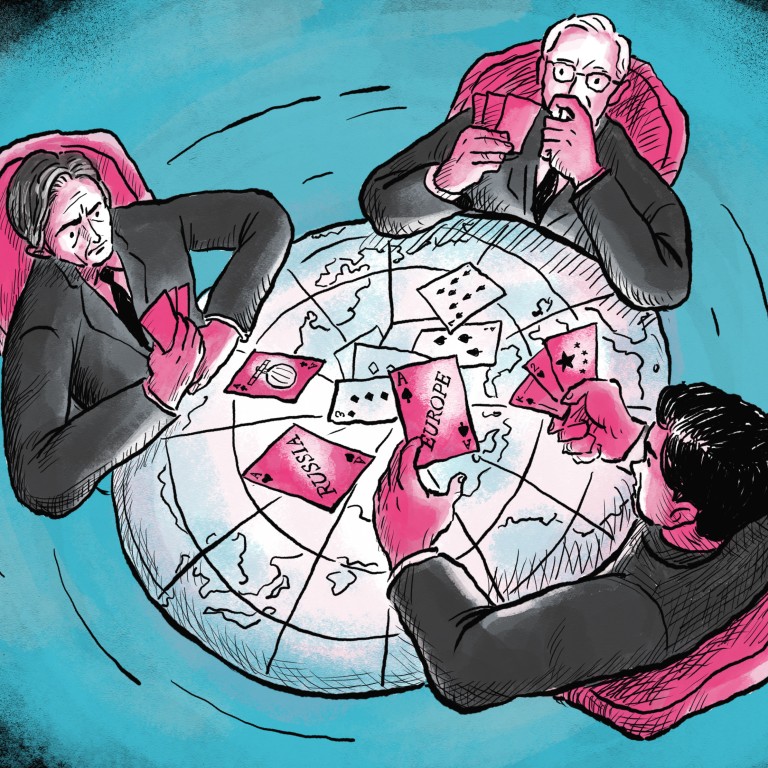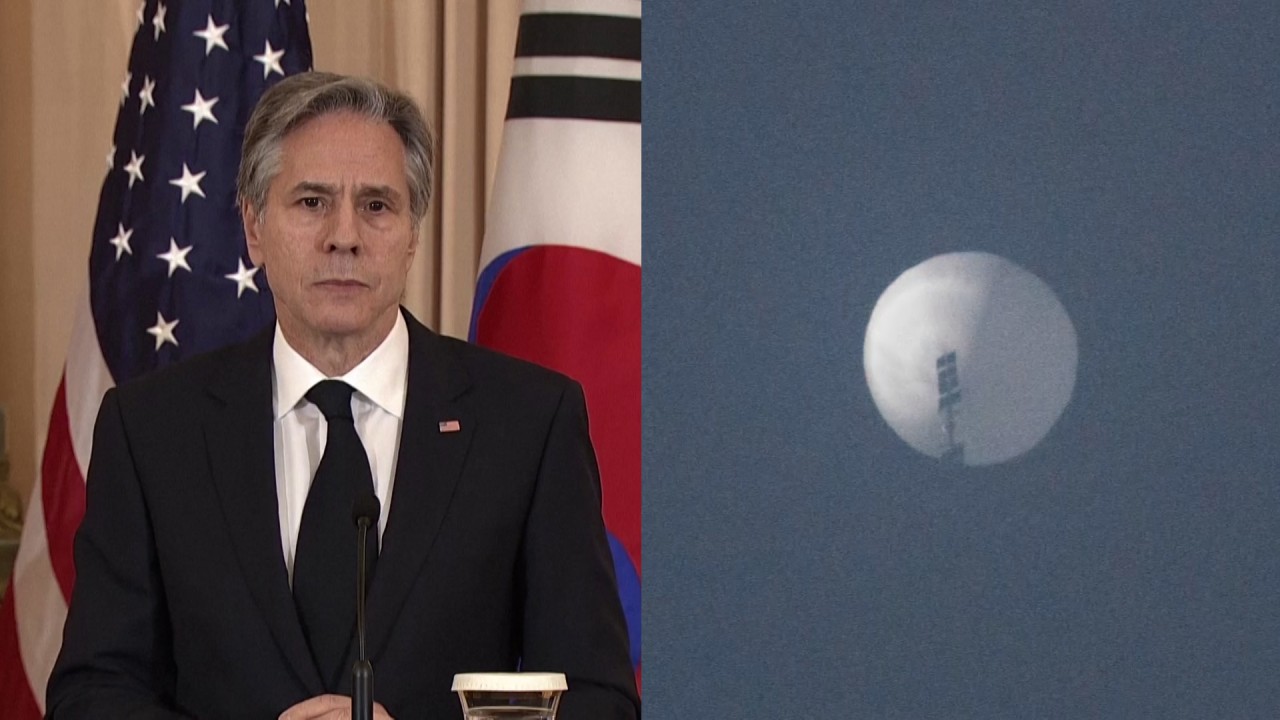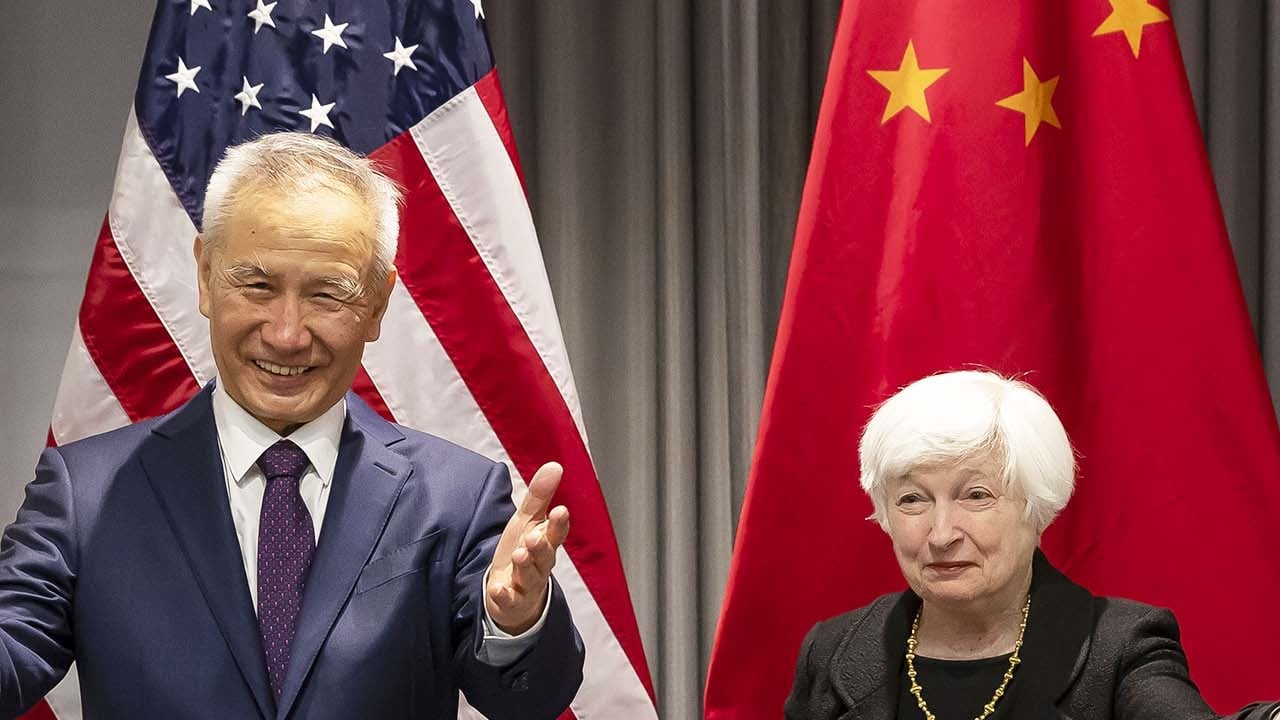
The turmoil disrupting China’s diplomatic priorities ahead of ‘two sessions’
- Leading diplomats Wang Yi and Qin Gang’s efforts to set the foreign policy stage have been hampered by balloon saga and Ukraine war
- But a look at their diaries in the past two months shows a focus on Europe and developing countries rather than the US
It did not turn out exactly as they could have expected just a few weeks ago, when the Chinese balloon saga erupted just as China-US relations seemed to be headed for some improvement after reaching their lowest point in decades.
US Secretary of State Antony Blinken’s visit to China in early February was cancelled in the heat of spying accusations against Beijing, followed by weeks of the two powers trading barbs and dashing hopes for a reset in their troubled relations.
But Wang and Qin’s work since taking up their new positions has given the world a glimpse of Beijing’s priorities, not only in its US ties but also relations with Europe.
In a speech last month to the Munich Security Conference, Wang, 69 – who served as foreign minister for a decade before taking on the role of China’s most senior diplomat – reflected on the geopolitical environment that Xi faces in his third term.
“Three years on, the pandemic is contained, but the world is not yet safer. Trust between major countries is lacking, geopolitical rifts are widening, unilateralism is rampant, the cold war mentality has returned, and new types of security threats from energy, food, climate, biosecurity and artificial intelligence keep emerging,” he said.
Among Wang’s 30 meetings and phone calls since his promotion, half were with European counterparts, with most taking place during his February visits to Italy, Hungary, Germany and Brussels.
Wang’s narrative after the trip expressed China’s hopes of a reset in its relations with Europe, strained over the war in Ukraine, human rights issues, and national security concerns.
Qin, 56 – who is widely tipped to become a state councillor during the two sessions, a move that would replicate Wang’s trajectory as foreign minister – had very few official interactions with Western countries in the same period.
Asean must not be proxy for any side, Indonesia says as China’s Qin Gang visits
Instead, the former ambassador to the US concentrated on developing countries and China’s Asian neighbours.
His calls included half of the 10 countries that make up the Association of Southeast Asian Nations – Malaysia, Thailand, Indonesia, Cambodia and Singapore – as well as South Korea and Japan. More than half of the rest of Qin’s three dozen meetings were with developing nations.
Lu Xiang, a specialist in US-China relations at the Chinese Academy of Social Sciences, said there was still a window for pragmatic developments between Washington and Beijing in the first six months of 2023, but it was closing.
US Treasury Secretary Janet Yellen’s statement after the balloon row – that she is still interested in visiting China – was a good sign, but by the end of the year campaigning would begin for the 2024 presidential election, Lu said.
“If nothing positive comes out in the first half of this year, it means there is not going to be any meaningful progress in the bilateral relations in this term of the Biden government,” he said. “By then, everything [the US does] will only be out of election concerns.”
While Chinese experts were sceptical that Blinken’s trip would have led to a softening in stance from either Beijing or Washington, they said China-US relations were even more up in the air since its cancellation.
“China-US relations are at a very high level of uncertainty. It is extremely difficult [for both countries] to know or plan for the next step,” Lu said.
Beijing hits out at Blinken’s ‘irresponsible and absurd’ Taiwan comments
Last year’s government report, delivered by outgoing Premier Li Keqiang to the two sessions, made no direct reference to the US in its review of the previous year. It was the first time since 2021 and, according to Lu, it may not get a mention this year.
“We should not expect the US to be mentioned in the government report, which is usually very focused on the economy anyway. China-US relations are now very much understood as an overwhelmingly political issue,” he said.
The 2021 work report included ongoing trade negotiations with Japan and South Korea, progress on “fair and mutually beneficial China-US trade relations”, and the signing of the now-stalled EU-China Comprehensive Agreement on Investment.
Wang’s attempt to revive China’s relations with Europe were met with a mixed response. Returning from his European trip, the diplomat said his meetings were “filled with expectations towards China’s development and … high hopes for China’s role on the world stage”.
China’s top diplomat urges France to boost tech ties and avoid decoupling
Wang said Europe was willing to push for a turnaround in economic and trade cooperation, as well as a revival for the China-EU comprehensive partnership. “They all hope to see a resumption of face-to-face exchanges at many levels, and reactivating cooperation in all-ranging aspects,” he said.
In an interview with Chinese state media published on February 24, Wang said he expected China-Europe relations to show a “direction of positive development”.
Wang’s friendly advances were met first with a slap – when EU leaders marked the anniversary of the war in Ukraine by echoing US warnings to China against sending arms to Russia – followed by the opening of a line of communication, when French President Emmanuel Macron said he would visit Beijing in April.
“China-EU relations are not just important for this year, but for the coming decade. As long as China-US strategic competition goes on, Europe will always be a focus [for China],” said Song Luzheng, an international affairs researcher at Fudan University.
“Actually this is not such a bad position for China to be in, because we are all certain now that the conflict between Russia and Ukraine will linger on.’
“China [thus] has the Russia card to play when dealing with Europe, as Europe sees the importance of China. [If China improves relations with Europe,] it has the Europe card to play with the US. This will put China in a much better position with the US.”
How EU-China relations became a casualty of the war in Ukraine
Zhiqun Zhu, a professor in international relations at Bucknell University in the US, said China’s foreign policy direction would be about consolidating relations with the developing world, while trying to break the Western alliance.
“China is attempting to break the apparent Western united front against China and to consolidate its traditional ties with developing countries,” he said.
“This is why China has worked to improve relations with US allies such as Australia and reached out to others including France, Germany and Italy. Wang Yi’s tour to Europe is part of such a strategy.
“In addition, China has continued to strengthen relations with the developing world, with high-level exchanges between China and Africa, the Middle East, Southeast Asia, Central Asia, and Latin America.”
China plans to train 5,000 security personnel from developing countries
Pang Zhongying, a professor in international political economy at southwestern China’s Sichuan University, said Beijing’s focus on shoring up ties with developing countries was nothing new.
“It has been a tradition that China attempts to drive closer to developing nations, or small and medium-sized countries, when they have a difficult relationship with the West, especially when it’s expected to be a prolonged one,” he said.
“But when these countries come to China to ask for economic support, the question is whether China still has resources for it, and whether it is sustainable.”
Additional reporting by Jun Mai









